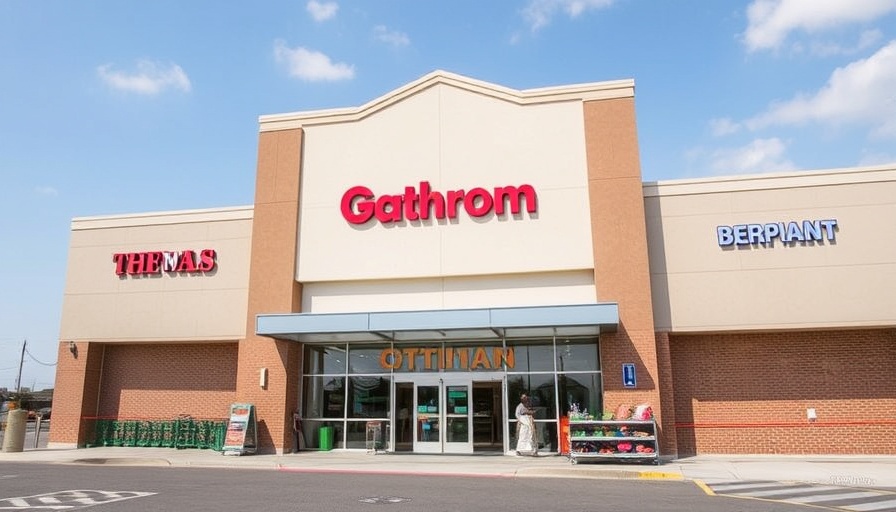
The Impact of Tariffs on American Brands and Retailers
As the economic landscape shifts dramatically due to tariffs, many retailers and brands are adjusting their pricing strategies to navigate the turbulent waters. With President Donald Trump’s administration implementing significant tariffs on imports from China, Canada, and Mexico, companies are left grappling with rising costs. The tariffs pose a unique challenge, especially for small businesses, which often lack the resources to absorb or offset those costs. A recent survey revealed that nearly two-thirds of small-business owners anticipate being adversely affected by these trade issues, with many expressing concerns about their long-term survival in this uncertain environment.
Retailers Responding to Economic Pressures
As consumers feel the pinch at checkout, awareness of which brands have raised prices can aid in making informed purchasing decisions. Digital retailers such as Temu and fast-fashion giant Shein are becoming increasingly costly, with both companies set to increase prices starting April 25. This escalation illustrates how even companies that are typically known for low prices are adapting in the face of economic pressures.
Technology companies, like Anker and Asus, already raised their prices due to tariffs, with Asus increasing laptop prices by $50 to $100. These increases are direct results of tariff implications, where the cost of goods sold increases, thereby necessitating higher prices for consumers. Other brands, such as Ferrari and Zwilling, have also opted for price hikes, highlighting that no industry is immune to these shifts.
Small Business Struggles: The Human Element
The consequences of rising prices due to tariffs are felt not only by businesses but also by individuals striving for financial wellness. For many consumers, especially in New Jersey and neighboring areas, budgeting and planning for financial goals become more critical when everyday items become pricier. As the average family juggles expenses, small changes in pricing can have substantial impacts on household budgets, making strategies for debt reduction and expense tracking essential.
Local businesses like Bogg Bag, which has raised tote bag prices by $5 to cover tariff costs, underscore the human stories behind these economic changes. These increases often reflect not only the necessity of maintaining a business but also the labor and love imbued in local craftsmanship. Every dollar matters when you’re also trying to reach your personal financial goals.
What Consumers Can Do
With the reality of ongoing price increases, how can consumers take proactive steps towards financial health? The strategies of budgeting and expense tracking become all the more relevant. Consider reviewing current expenses and identifying areas where adjustments can be made. Whether it's cutting back on non-essential purchases or looking for alternatives for goods that have seen price hikes, consumers can take charge of their finances during these challenging times.
Budget-friendly resources are readily available, from apps that assist in tracking expenses to community workshops aimed at improving financial literacy. Empowering oneself with financial knowledge can turn a challenge into an opportunity for personal growth and financial stability.
Future Predictions: Economic Trends in Retail
Looking ahead, the current wave of price hikes might only be the beginning. With ongoing legal and political battles surrounding tariffs, businesses must stay flexible and ready to adapt. Many experts predict that as tariffs continue to shape the economy, we will see further innovations in supply chain management and cost-cutting strategies from businesses. Additionally, alternative sourcing strategies could emerge as companies look to mitigate the impact of tariffs on their pricing, ideally resulting in a more balanced market for consumers.
As retailers recover from these tariff-induced changes, consumers must remain vigilant and informed. The marketplace is evolving, and understanding these dynamics can provide valuable insights for both purchasing behavior and personal finance management.
Community Response: A Call to Action
As we navigate these economic challenges together, it's vital to support local businesses. Not only do they contribute to the vibrancy of our communities, but shopping locally can also help shield them from the adverse impacts of tariffs. Find ways to support your neighborhood establishments while also evaluating your own financial wellness. Together, we can weather these economic storms and emerge more resilient.
 Add Row
Add Row  Add
Add 




 Add Row
Add Row 


 Add
Add
Write A Comment